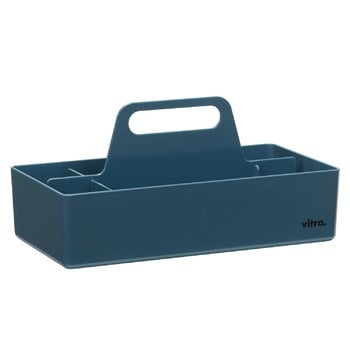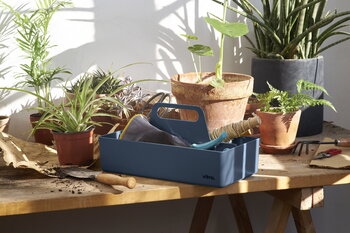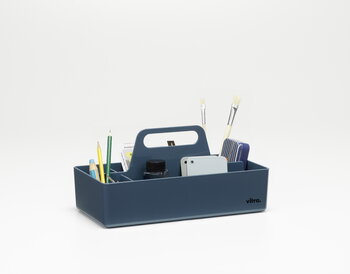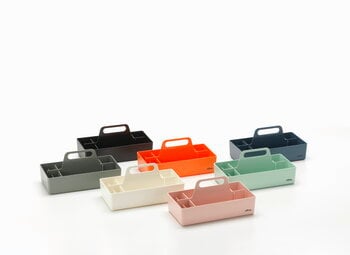Vitra’s Toolbox is a versatile storage box for various uses. Designed by Arik Levy, Toolbox helps to organize office supplies on the desk, and it keeps small tools easily available in the garden, kitchen or garage. Toolbox has an open structure with different sizes of compartments, and the sturdy handle helps you to carry it around easily.
Vitra’s Toolbox RE is a special edition of the practical organizer, made entirely of recycled plastic. The eco-friendly material derives from post-consumer recycled plastic, namely plastic packaging from household waste. At the end of its lifecycle, the container is also 100% recyclable.











